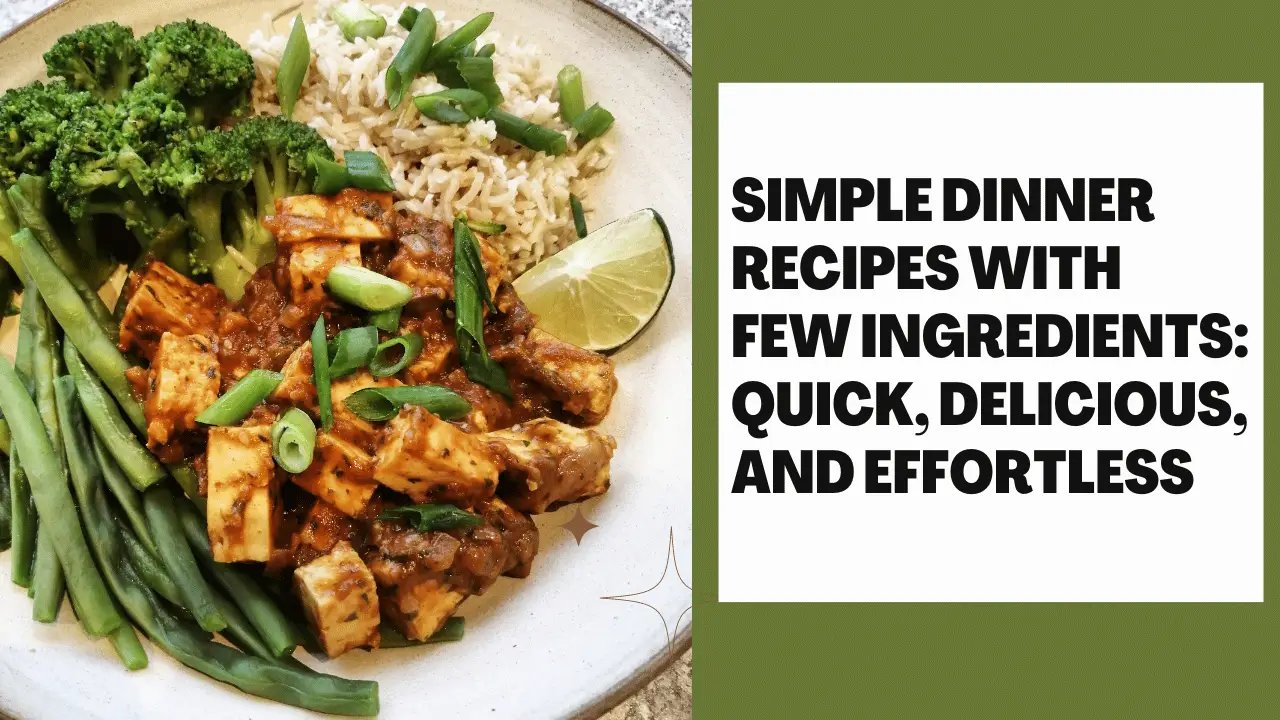Does Rice Make You Gain Weight? What You Need to Know About White Rice, Brown Rice & Healthy Habits

Rice is one of the most eaten foods in the world. From sushi in Japan to burritos in Mexico, it appears in millions of meals every day. But there’s one significant question that never goes away: does rice make you gain weight?
If you live in the USA or Canada, you may have heard mixed advice. Some people say rice is “bad carbs” that add belly fat. Others claim rice can be part of a healthy diet and even help with muscle gain. The truth is more complex and more interesting than either extreme.
This guide breaks it all down. We’ll look at white rice vs. brown rice, calories, nutrition, and real-life examples. You’ll discover how rice affects weight, and how you can enjoy it without fear.
- Does Rice Make You Gain Weight? What You Need to Know About White Rice, Brown Rice & Healthy Habits
- Types of Rice and Their Effects on Weight Gain
- Does Rice Make You Gain Weight?
- Does White Rice Make You Gain Weight?
- Does Brown Rice Make You Gain Weight?
- Can Eating Rice Make You Gain Weight?
- Can Rice Help You Gain Weight?
- Brown Rice and Weight Gain: Myths vs Reality
- Practical Tips: Eating Rice Without Gaining Weight
- FAQ: Quick Answers
- Conclusion:
Types of Rice and Their Effects on Weight Gain
Not all rice is the same. Each type has different nutrients, fiber, and digestion speed, which can change how it affects weight. Here’s a breakdown:
1. White Rice| long-grain, enriched
- Calories: ~200
- Carbs: 45 g
- Protein: 4 g
- Fat: 0.4 g
- Fiber: 0.6 g
- GI (glycemic index): High (~70)
– Fast-digesting, good for quick energy but less filling.
2. Brown Rice| long-grain
- Calories: ~215
- Carbs: 45 g
- Protein: 5 g
- Fat: 1.6 g
- Fiber: 3.5 g
- Glycemic Index: Medium (~50)
– More filling, higher in nutrients, supports weight control.
3. Basmati Rice| white, cooked
- Calories: ~190
- Carbs: 39 g
- Protein: 4.5 g
- Fat: 0.6 g
- Fiber: 1 g
- Glycemic Index: Medium (~50–58 depending on type)
– Lower GI than regular white rice; steadier energy release.
4. Jasmine Rice| white, cooked
- Calories: ~205
- Carbs: 45 g
- Protein: 4 g
- Fat: 0.5 g
- Fiber: 0.6 g
- Glycemic Index: High (~68–80)
– Similar to white rice but with a fragrant flavor; less ideal for weight loss.
5. Black Rice| Forbidden Rice
- Calories: ~210
- Carbs: 44 g
- Protein: 6 g
- Fat: 1.7 g
- Fiber: 3 g
- Glycemic Index: Medium (~42–45)
- Extra: High in antioxidants (anthocyanins, same compounds as blueberries)
– Nutrient-dense, supports fullness, and fights inflammation.
6. Wild Rice| technically a grass, not true rice
- Calories: ~165
- Carbs: 35 g
- Protein: 6.5 g
- Fat: 0.6 g
- Fiber: 3 g
- Glycemic Index: Low (~45–53)
– Lower in calories, higher in protein compared to most rice; great for weight management.
Quick Comparison Table
| Rice Type | Calories | Carbs | Protein | Fat | Fiber | GI Level | Weight Effect |
|---|---|---|---|---|---|---|---|
| White Rice | ~200 | 45 g | 4 g | 0.4 g | 0.6 g | High (~70) | Easy to overeat; weight gain if portions large |
| Brown Rice | ~215 | 45 g | 5 g | 1.6 g | 3.5 g | Medium (~50) | More filling; helps control weight |
| Basmati Rice | ~190 | 39 g | 4.5 g | 0.6 g | 1 g | Medium (~50–58) | Balanced; better for steady energy |
| Jasmine Rice | ~205 | 45 g | 4 g | 0.5 g | 0.6 g | High (~68–80) | Similar to white rice; less filling |
| Black Rice | ~210 | 44 g | 6 g | 1.7 g | 3 g | Medium (~42–45) | Nutrient-rich; good for fullness |
| Wild Rice | ~165 | 35 g | 6.5 g | 0.6 g | 3 g | Low (~45–53) | Lower calorie, higher protein; weight-loss friendly |
Does Rice Make You Gain Weight?
The short answer: it depends on how you eat it. Rice itself is not “bad” or “fattening.” What matters is the portion size, how often you eat it, and what you pair it with.
- A single cup of prepared white rice contains approximately 200 calories and minimal fat.
- If you eat rice with lean protein and vegetables, it’s balanced.
- If you eat large bowls of rice with fried foods and sauces, calories add quickly.
So, rice can make you gain weight if you overeat it. But in the right portion, it’s simply a source of energy.
Does White Rice Make You Gain Weight?
White rice is the most popular type in the USA and Canada. But it’s also the most debated.
- Low in fiber → White rice digests quickly and can make you hungry sooner.
- High glycemic index (GI) → Raises blood sugar faster, which may lead to overeating.
- Some studies show that white rice links to a higher risk of weight gain, while others show no strong link.
Takeaway: Eating white rice in moderation won’t make you gain weight. Pairing it with protein and veggies is best. This helps balance blood sugar and keeps you feeling full.
Does Brown Rice Make You Gain Weight?
Brown rice is a whole grain. Unlike white rice, it keeps the bran and germ, making it richer in fiber, vitamins, and minerals.
- More fiber → Helps digestion and keeps you full longer.
- Lower glycemic index → Causes a slower rise in blood sugar.
- Studies → Show that brown rice may help with weight management and lower risk of obesity.
– Takeaway: Eating brown rice alone won’t make you gain weight. In fact, it may support weight control if you replace refined grains like white bread or pasta with brown rice.
Can Eating Rice Make You Gain Weight?
Yes, if you eat more calories than your body burns. Rice is calorie-dense compared to vegetables, so large servings can quickly push you into a surplus.
For example:
- 1 extra cup of rice a day (200 calories) = 1 pound of fat gain in 2 weeks if you don’t burn it off.
But eating rice within your daily calorie needs won’t cause weight gain. The key is balance.
Can Rice Help You Gain Weight?
Here’s where rice can actually be useful. If you’re underweight, an athlete, or trying to build muscle, rice can help you add healthy calories.
- Mix rice with protein (chicken, tofu, salmon) and healthy fats (avocado, olive oil).
- Eat rice bowls, stir-fries, or burritos for easy calorie boosts.
- Add rice to soups and curries to increase portion size without making meals too heavy.
– Athletes often use white rice as a quick fuel before or after workouts because it digests fast.
Brown Rice and Weight Gain: Myths vs Reality
Some people believe brown rice causes weight gain because it still has carbs. But that’s misleading.
- Brown rice has more nutrients and keeps you satisfied longer.
- If you overeat it, yes, calories can still add.
- But compared to white rice, brown rice is less likely to cause fat gain because it reduces hunger and blood sugar spikes.
So, brown rice is generally better for weight management in the long run.
Practical Tips: Eating Rice Without Gaining Weight
Here’s how you can enjoy rice while staying on track with your goals:
Portion Control
- Use ½ to 1 cup cooked rice per meal (size of your fist).
- Fill half your plate with vegetables, one-quarter with protein, one-quarter with rice.
Choose Wisely
- Prefer brown rice, wild rice, or black rice for more fiber.
- Save white rice for post-workout meals or occasional dishes.
Cooking Tricks
- Cook rice, let it cool, then reheat → this creates resistant starch, which lowers blood sugar impact.
- Avoid frying rice with oil and butter for fewer calories.
Add Balance
- Always eat rice with protein and veggies.
- Avoid sugary sauces that add hidden calories.
FAQ: Quick Answers
Is rice bad for weight loss?
No. In small portions, rice can fit into a weight-loss plan.
Is eating rice at night bad?
Not if it fits your daily calorie goal. But heavy rice meals late at night may lead to overeating.
Which is better for weight: white or brown rice?
Brown rice is usually better because of fiber and slower digestion.
Can I eat rice every day?
Yes, if you control portions and pair them with balanced foods.
Conclusion:
Should You Avoid Rice for Weight Control? So, does rice make you gain weight? The answer is: only if you eat too much or pair it with unhealthy foods. White rice digests faster and may trigger hunger, while brown rice provides more fiber and supports weight control.
To avoid weight gain, keep rice portions small and balance them with protein and veggies. To gain healthy weight, rice is a simple, affordable, and effective way to add calories to your meals.








Pingback: Easy Lunch Meal Prep Ideas for Busy, Healthy Living